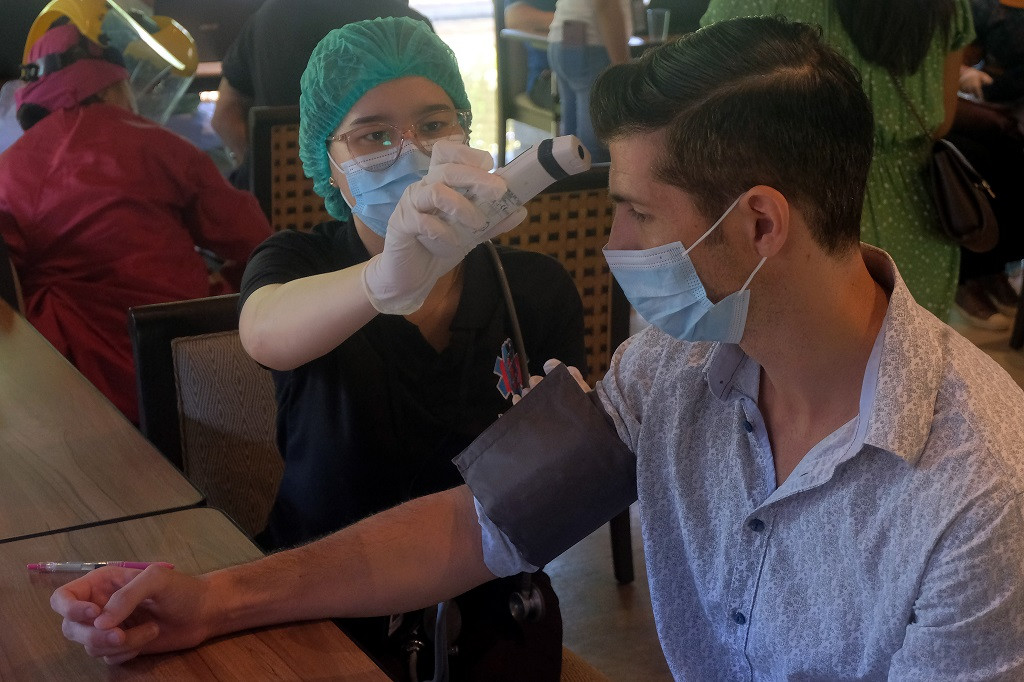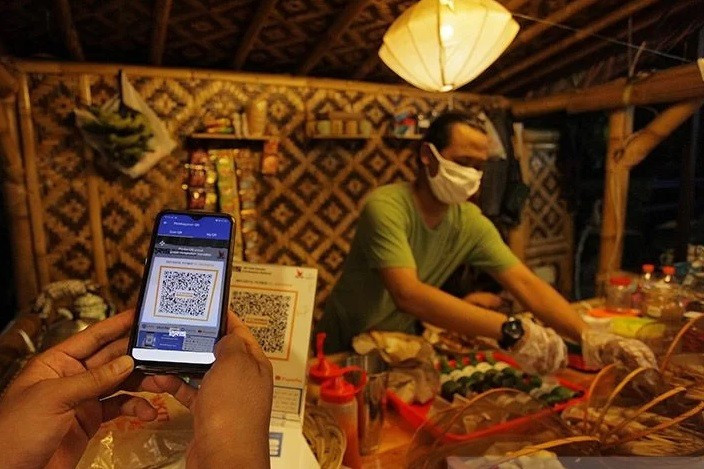Popular Reads
Top Results
Can't find what you're looking for?
View all search resultsPopular Reads
Top Results
Can't find what you're looking for?
View all search resultsVaccine profiteering
We expect the government to take full control of the handling of the pandemic and not to let the market decide who should live or die.
Change text size
Gift Premium Articles
to Anyone
W
ith emergency public activity restrictions (PPKM Darurat) being considered largely inadequate to stop the Delta-fueled second wave of COVID-19, the government has few options but to rely on the vaccination drive to save lives.
Vaccines have proven effective at protecting those who contract the virus from developing severe symptoms or succumbing to the disease. The government’s decision to expedite the national jab drive, regardless of its questionable targets, is thus a step in the right direction, especially now that hundreds of people are dying of the virus each day.
It is indeed baffling that we learned over the weekend that the government had abruptly decided to ask some people to pay for vaccines through a scheme called the “collaborative individual vaccination program”. While the government has ensured that the free vaccination program for limited brands – Sinovac, AstraZeneca, Pfizer and Moderna – is still in place, the private, commercial vaccination program still raises a lot of questions.
Kimia Farma, the state-owned pharmaceutical firm tasked with selling the commercial vaccine (Sinopharm), argues that the private vaccination program will speed up the process of achieving herd immunity.
That argument, however, barely holds water. If the ultimate goal of selling the vaccines is to speed up the jab drive, it can also be done – at a faster rate, even – by administering them for free. There is no argument, let alone evidence, to support the idea that more people will show up to get the jab if they are asked to pay for it. It makes little sense.
It is true that vaccine hesitancy remains a huge problem in the country, with certain elements of society still doubting if the vaccines are safe, or worse, if COVID-19 is real. But the fact is that a lot of people are still waiting for their turn to be inoculated. In other words, the problem now has more to do with logistics than anything else. If anything, how will commercializing vaccines solve any of the two problems?
It is hard to ignore suspicions that the private vaccination program is nothing but a shameless act of profiteering during a time of crisis.
The program has been problematic since the get-go. Initially, the Health Ministry ruled that pharmaceutical companies could only sell the Sinopharm vaccines to businesses so they could inoculate their employees. The ministry reportedly amended its own regulation shortly before Kimia Farma, a publicly listed company, announced that individuals could buy the vaccines at their pharmacies.
It is no surprise that civil society groups strongly oppose the policy, forcing Kimia Farma to postpone its implementation. It is not impossible that the government will cancel the program entirely rather than risk weakening public confidence further.
We expect the government to take full control of the handling of the pandemic and not to let the market decide who should live or die. The pandemic has exacerbated social and economic inequalities, with some people having greater financial and political resources to access life-saving health facilities than others.
The last thing we need is for certain parties to engage in vaccine profiteering and create a vaccine apartheid.










